Ending new HIV transmissions is possible within the decade, but not without more action and real awareness of PrEP in the community.
As a woman of Ghanaian heritage, the impact of HIV/AIDS on the African community is not theoretical to me – it is very real. In the 1980s and 1990s, communities like mine – both in the UK, Africa and the Caribbean – were devastated by the virus’s impact, with many people losing family members and close friends. But the impact of the virus, while radically different, is not over.
As the Labour MP for Streatham, I represent a constituency at the epicentre of the UK HIV epidemic. Lambeth is a diverse community and better for it. It is where many people from African, Caribbean and LGBT+ communities have chosen to make their home and in doing so, make our area one of the best places to live. Both these groups are disproportionately affected by HIV. Lambeth is the borough with the highest number of people living with HIV. It is estimated that across Lambeth, Southwark and Lewisham, there are about 1,000 people living undiagnosed with HIV. To put that into context, that’s about a sixth of all undiagnosed people in England.
There is an urgency to ending HIV here in south London, but that urgency is often lost nationally. HIV is no longer the death sentence it once was but this is not known widely enough – especially among Black Britons – nor are the massive advancements in medical treatment. Nowadays, people living with HIV and on effective treatment can live long, healthy and fulfilling lives. They cannot pass on the virus. Even more remarkably, this treatment stops the virus being passed on during pregnancy, so pregnant women living with HIV won’t pass on HIV to the next generation. Why are we not shouting this from the rafters?
Let’s face it, it’s not the science that’s holding us back in the fight against HIV; it’s the stigma and misinformation that’s still associated with the virus. According to Public Health England, Black communities are still heavily impacted by HIV, with an estimated 28,200 Black African men and women living with HIV in the UK. In spite of this, five per cent of Black Africans living with HIV are still unaware they have the virus. It is time we all knew our HIV status.
Although there has been a slight 3% increase in HIV testing within the community, Black Africans are most likely to leave a sexual health clinic without being offered a HIV test and still overwhelmingly affected by late diagnosis. The longer the virus goes undetected the greater the damage to your immune system. To tackle this, testing for HIV needs to become standard practice – every time we present at A&E, register for a GP or whenever the NHS takes a blood sample, a HIV test should be offered. But we can all get a free test, simple and easy to do at home.
As an MP, I know how important it is to practice what you preach. I recently tested for HIV as part of a screening programme for research on COVID-19. It was quick, easy and I got my results soon after. Normalising HIV testing really matters, especially in Lambeth, if we are to get down one of the highest rates of new HIV diagnoses every year, and the stubborn rate of late diagnosis – 35% in 2019.
While most of us are stuck at home, testing for HIV is a great way to use that extra time. The test can be sent to your home, takes a few minutes to do and the results arrive by text or email within a few days.
Testing for HIV is so important if you are living with HIV because it means you can access treatment straight away but it’s also important if you are not living with HIV. A negative result shouldn’t be the end point – there are now lots of ways to stay HIV negative. There is the relatively new anti-HIV drug PrEP (which is now free on the NHS), condoms and regular testing. While over five percent of those on the national PrEP Impact Trial live here in Lambeth, knowledge of the huge benefits of PrEP are largely unknown amongst the Black community. I want to see this information made available as standard after a HIV test. Everyone given a negative result should get the information to stay negative and that includes knowledge of PrEP.
I want to see PrEP dispensed in community settings, not just sexual health clinics. Residents in Streatham, and across the country, should be able to get PrEP at their GP surgery, a local pharmacy and through their maternity services. By removing unnecessary barriers, we can help more people stay healthy and end new HIV transmissions – something which is possible within this decade.
The Government has committed to this target but we need real action, starting now. The HIV Commission, launched less than two months ago gives us a road map. No population should be left behind in efforts to end new cases of HIV, and it means not shying away from stamping out the structural racism and discrimination that fuels the significant health inequalities experienced by Black communities.
We’ve made huge progress since the early days of the HIV epidemic in the UK but the job isn’t finished yet. It’s something I’m determined to make happen on my watch as an MP. All of us have a part to play in ending the stigma and helping to stop new cases of HIV, and that starts with getting a HIV test.
You can order your free HIV self-test kit from Terrence Higgins Trust, available via the It Starts With Me website: startswithme.org.uk.
